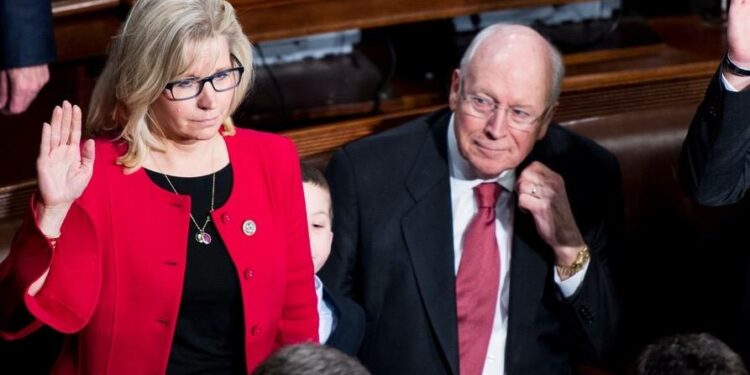
Former Rep. Liz Cheney (R-Wyo.) has sharply criticized former President Donald Trump’s stance on Russia, arguing that his approach is fundamentally at odds with the values upheld by Ronald Reagan, the Republican icon who championed the defeat of the Soviet Union. Cheney, who has been a vocal opponent of Trump, took to social media to voice her concerns, claiming that Trump’s policies align too closely with the Russian regime under President Vladimir Putin.
In her remarks, Cheney argued that Trump’s admiration for Putin, coupled with his controversial stance on Ukraine, represents a departure from the strong stance against communism and tyranny that defined Reagan’s presidency. “Trump’s actions—his seeming devotion to Putin, his failure to support Ukraine, and his distortion of history—run counter to everything Ronald Reagan fought for,” Cheney wrote. “He’s effectively undermining the very freedom that countless Americans have fought to protect.”
Cheney’s criticism follows Trump’s recent comments about the ongoing war between Russia and Ukraine. Trump suggested that the war could have been avoided if Ukrainian President Volodymyr Zelensky had not started the conflict. This rhetoric has raised eyebrows, given that the war began with Russia’s full-scale invasion of Ukraine in February 2022, a blatant violation of Ukraine’s sovereignty and democracy.
Trump, who has expressed his intention to broker a peace deal between Russia and Ukraine, is also pursuing direct talks with both Putin and Zelensky. These diplomatic efforts were further reflected in the recent meeting between senior Trump administration officials and Russian counterparts in Saudi Arabia, a notable shift in U.S.-Russia relations. Trump’s critics, however, worry that these actions may embolden Russia and harm Ukraine’s position in the war.
Cheney took particular aim at Republicans who continue to support Trump, including those who align themselves with the “Reagan Republican” label. She warned that history would not be kind to those who overlook the dangerous ramifications of Trump’s approach to foreign policy. Reagan’s legacy, after all, is defined by his relentless fight against the Soviet Union, and for Cheney, it’s clear that Trump’s views on Russia do not reflect that same commitment to freedom.
While Trump’s allies, such as former National Security Adviser Mike Waltz, have defended his position, emphasizing that Trump is focused on seeking a diplomatic resolution to the conflict, Cheney and other critics remain unconvinced. As the war in Ukraine drags on, the debate over the Republican Party’s foreign policy direction—and whether it should align more closely with Reagan’s vision or Trump’s approach—continues to be a dividing issue within the GOP.
